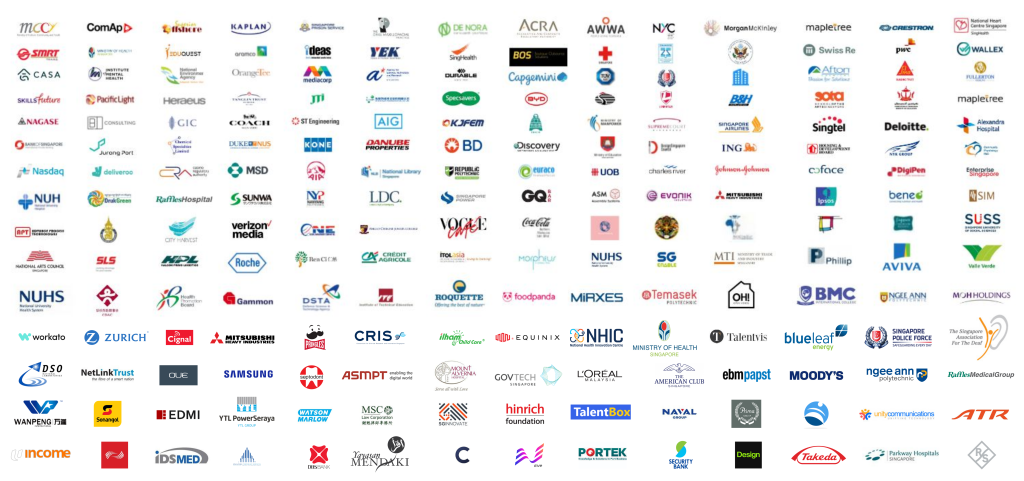Crisis Leadership Training Course in Malaysia
Our Leadership Courses in Malaysia is also available in Kuala Lumpur, Melaka, Langkawi, Cemeron Highlands, Kota Kinabalu, Penang, George Town, Kajang, Seberang Perai, Petaling Jaya, Klang, Johor Bahru, Shah Alam, Subang Jaya,c Selayang, Ipoh, Seremban, Iskandar Puteri, Kuantan, Sungai Petani, Ampang Jaya, Malacca City, Sandakan, Alor Setar, Tawau, Batu Pahat, Kota Bharu, Kuala Terengganu, Kuching, Sepang, Kulim, Muar, Pasir Gudang, and Kuala Langat.
In the ever-evolving landscape of business and society, crises are inevitable challenges that demand exemplary leadership. Welcome to the ‘Crisis Leadership Training Course in Malaysia’, where we embark on a transformative journey to equip leaders with the skills and resilience needed to navigate tumultuous times with confidence and grace. Malaysia, with its diverse cultural tapestry and dynamic economic landscape, presents unique challenges and opportunities for crisis management. It is within this context that we gather to explore the art and science of crisis leadership, tailored specifically for the Malaysian environment.
In times of crisis, leadership is not just about making decisions; it’s about inspiring trust, providing clarity, and instilling hope amidst uncertainty. Throughout this course, participants will delve into the core principles of crisis leadership, drawing on real-world case studies and interactive simulations to hone their decision-making prowess. From natural disasters to reputational crises, every module is meticulously designed to empower leaders with the tools and strategies needed to navigate the myriad challenges they may face.
As we journey through the ‘Crisis Leadership Training Course in Malaysia’, we recognise the importance of cultural sensitivity and context in effective crisis communication. Malaysia’s rich diversity of cultures and languages adds layers of complexity to crisis management, requiring leaders to navigate with empathy and understanding. Through immersive workshops and role-playing exercises, participants will learn to tailor their communication strategies to resonate with diverse audiences, fostering trust and transparency in times of adversity.
In conclusion, as we embark on this quest for excellence in crisis leadership, let us embrace the challenges as opportunities for growth and innovation. Together, let us elevate our leadership capabilities to new heights, empowering ourselves and our organisations to emerge stronger from any crisis that may arise. Welcome to the ‘Crisis Leadership Training Course in Malaysia’, where leaders are forged in the fires of adversity and emerge as beacons of resilience and hope.
Who Should Attend this Crisis Leadership Training Course in Malaysia
In the fast-paced world of modern business, crises can strike at any moment, testing the mettle of leaders and organisations alike. Introducing the ‘Crisis Leadership Training Course in Malaysia’, where we embark on a transformative journey to prepare leaders for the unexpected challenges that may arise. This course is not just about reacting to crises; it’s about proactively equipping leaders with the skills, mindset, and strategies needed to navigate turbulent waters with resilience and foresight.
As we delve into the intricacies of crisis leadership, we acknowledge the diverse array of individuals who stand to benefit from this invaluable training. From seasoned executives to emerging leaders, anyone tasked with guiding their organisation through turbulent times will find immense value in the insights and techniques offered in this course. Whether you’re leading a multinational corporation or a local SME, the principles of crisis leadership transcend industries and sectors, making this course relevant and essential for leaders across the board.
Join us as we explore the art and science of crisis leadership, tailored specifically for the Malaysian context. Together, let us empower ourselves to lead with confidence, compassion, and clarity in the face of adversity. Welcome to the ‘Crisis Leadership Training Course in Malaysia’, where leaders are equipped to navigate storms and emerge stronger on the other side.
- Executives
- Team Leaders
- Entrepreneurs
- Educators
- Recent Graduates
Course Duration for Crisis Leadership Training Course in Malaysia
Embark on a journey of resilience and preparedness with our ‘Crisis Leadership Training Course in Malaysia’, where leaders hone their skills to navigate turbulent times. With options ranging from immersive 3 full-day sessions to concise 1-day workshops, participants have the flexibility to choose a duration that suits their schedule and learning preferences. For those seeking a quick yet impactful learning experience, we also offer engaging half-day seminars, as well as focused 90-minute and 60-minute sessions, all aimed at equipping leaders with the essential tools to lead effectively in times of crisis.
- 2 Full Days
- 9 a.m to 5 p.m
Course Benefits of Crisis Leadership Training Course in Malaysia
Unlock the potential of effective crisis leadership with our ‘Crisis Leadership Training Course in Malaysia’, where participants gain invaluable skills to navigate crises with confidence and resilience.
- Enhanced crisis management capabilities
- Improved decision-making under pressure
- Strengthened communication skills during crises
- Increased team cohesion and collaboration
- Reduced negative impacts on reputation and brand
- Better ability to anticipate and mitigate risks
- Enhanced organisational resilience and adaptability
- Improved stakeholder trust and confidence
- Greater ability to lead with clarity and confidence
- Enhanced career prospects and leadership potential
Course Objectives for Crisis Leadership Training Course in Malaysia
Immerse yourself in our ‘Crisis Leadership Training Course in Malaysia’, where the objectives are centred around equipping leaders with the skills and strategies necessary to effectively lead through crises. Through interactive learning experiences, participants will learn to anticipate, respond to, and recover from crises with resilience and agility.
- Develop a comprehensive crisis management plan tailored to organisational needs
- Enhance situational awareness and decision-making during crises
- Establish effective communication channels for crisis response and recovery
- Implement crisis simulation exercises to test readiness and response capabilities
- Foster a culture of preparedness and resilience within the organisation
- Strengthen relationships with key stakeholders before, during, and after crises
- Identify and assess potential risks and vulnerabilities within the organisation
- Train and empower crisis management teams to execute response plans effectively
- Conduct post-crisis evaluations to identify lessons learned and areas for improvement
- Continuously update and refine crisis management strategies based on evolving threats and challenges
- Build a network of support and collaboration with external partners and resources
- Provide support and assistance to affected individuals and communities during and after crises
Course Content for Crisis Leadership Training Course in Malaysia
Immerse yourself in our ‘Crisis Leadership Training Course in Malaysia’, where participants explore a comprehensive range of topics aimed at equipping leaders with the skills and strategies needed to navigate crises effectively.
- Develop a comprehensive crisis management plan tailored to organisational needs
- Identify potential crisis scenarios relevant to the organisation
- Assess the impact of crises on various aspects of the organisation
- Create detailed response protocols and procedures for each crisis scenario
- Enhance situational awareness and decision-making during crises
- Train leaders to gather and analyse information quickly and accurately during crises
- Provide tools and frameworks for making effective decisions under pressure
- Simulate realistic crisis scenarios to practice situational awareness and decision-making
- Establish effective communication channels for crisis response and recovery
- Develop communication plans outlining roles and responsibilities during crises
- Utilise multiple communication channels, including traditional and digital platforms
- Train spokespersons and leaders on crisis communication best practices
- Implement crisis simulation exercises to test readiness and response capabilities
- Design and execute tabletop exercises to simulate various crisis scenarios
- Observe and evaluate team responses to identify strengths and areas for improvement
- Debrief participants to extract lessons learned and refine crisis response plans
- Foster a culture of preparedness and resilience within the organisation
- Embed crisis preparedness into organisational values and norms
- Provide ongoing training and resources to build resilience among employees
- Encourage proactive risk identification and mitigation efforts at all levels
- Strengthen relationships with key stakeholders before, during, and after crises
- Identify and prioritise key stakeholders based on their roles and interests
- Establish communication channels and mechanisms for engaging stakeholders
- Develop partnerships and alliances to enhance mutual support and collaboration
- Identify and assess potential risks and vulnerabilities within the organisation
- Conduct risk assessments to identify internal and external threats to the organisation
- Develop risk mitigation strategies to address identified vulnerabilities
- Monitor and review risk profiles regularly to ensure ongoing effectiveness
- Train and empower crisis management teams to execute response plans effectively
- Provide specialised training to crisis management team members on their roles and responsibilities
- Empower team members to make decisions and take action within their areas of expertise
- Conduct regular drills and exercises to maintain team readiness and effectiveness
- Conduct post-crisis evaluations to identify lessons learned and areas for improvement
- Review crisis response activities to evaluate effectiveness and identify successes and challenges
- Facilitate open and honest discussions to gather feedback from participants and stakeholders
- Develop action plans to address identified gaps and improve future crisis response efforts
- Continuously update and refine crisis management strategies based on evolving threats and challenges
- Monitor emerging trends and developments in crisis management best practices
- Review and update crisis management plans and procedures in response to new threats or changes in the operating environment
- Engage in regular training and professional development activities to stay abreast of industry trends and developments
- Build a network of support and collaboration with external partners and resources
- Establish partnerships with government agencies, NGOs, and other organisations to enhance crisis response capabilities
- Participate in industry forums and networks to share knowledge and best practices
- Develop mutual aid agreements and protocols for sharing resources and support during crises
- Provide support and assistance to affected individuals and communities during and after crises
- Develop protocols for providing emotional support and counselling to affected individuals
- Coordinate with local authorities and community organisations to provide assistance and resources
- Engage in community outreach and engagement activities to build trust and resilience
Upcoming Course and Course Brochure Download for Crisis Leadership Training Course in Malaysia
Stay tuned for exciting updates and be the first to access our comprehensive brochures for the ‘Crisis Leadership Training Course in Malaysia’, where you’ll discover cutting-edge strategies and invaluable resources to navigate crises with confidence. Keep an eye on our website for announcements on upcoming sessions and how you can equip yourself and your team with the skills needed to lead effectively through turbulent times. Don’t miss out on this opportunity to stay ahead of the curve and prepare yourself to tackle any crisis head-on with our expert-led training course.

